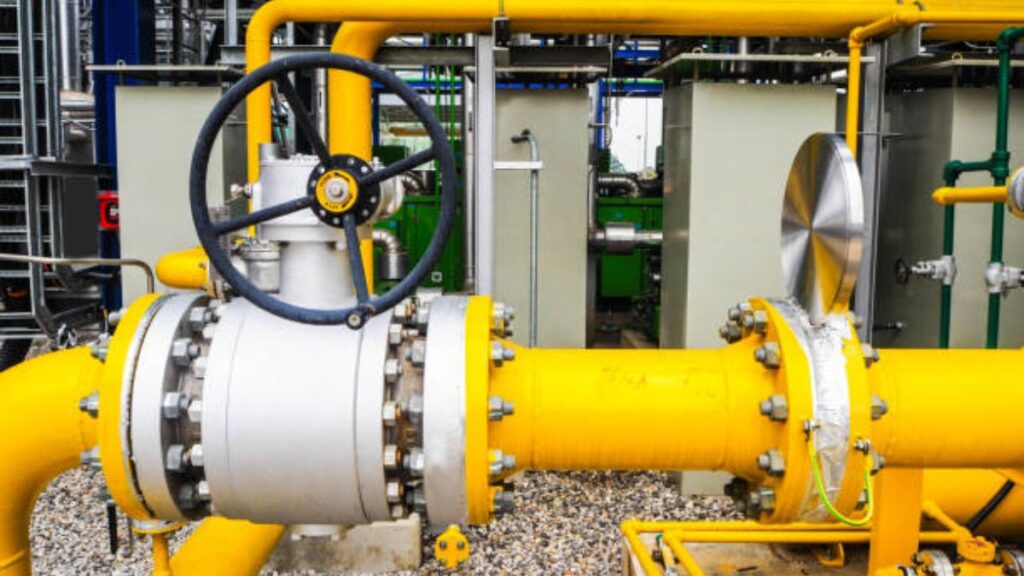Sustainability is gradually gaining ground in the business world due to the growing demand for companies to decrease their negative impact on the environment. Pump manufacturers have a very important part to play in this process since valves are essential for many applications especially those in the energy, water and emission control industries. Sustainability in the production of valves is a concept that aims at achieving efficiency in its operations while addressing the impact that the production process has on the environment and the impact the final product will have on the environment. This article will discuss how valve manufacturers are responding to these challenges in their production processes while still achieving high levels of performance and reliability.
Sustainable Materials and Techniques
As one of the major areas of reform in the valve production process, environmental friendliness is one of the most important approaches to making valve production greener. For example, globe valve manufacturers are looking for material that can be strong and at the same time have minimal negative impact on the environment. This includes minimizing the use of non-renewable materials and instead using recycled or biodegradable materials whenever possible.
Further, there is the use of better production processes that do not lead to wastage of resources in the manufacturing of their products. Through the employment of state-of-the-art Computer Numerical Controlled (CNC) machining and Additive Manufacturing (AM), or 3D printing, the manufacturing of valves can be done with little material wastage while maintaining high engineering standards. These practices can be deemed especially helpful in minimizing the overall carbon emissions in the making of valves.
Valves used for B2B companies are not only selected according to the requirements of legislation in the field of environmental protection but also as a means of increasing the company’s long-term performance.
Energy Conservation in Manufacturing
It is also important to reduce energy usage during the manufacturing of these valves so that they can be produced sustainably. Some of the processes involved in the manufacture of valves include casting, machining and heat treatment, all these processes emit greenhouse gasses. In response to this, there has been increased capital investment on energy efficient equipment in the manufacturing process and efficient handling of the production processes.
For instance, the globe valve manufacturers are utilizing automation and smart manufacturing techniques to improve energy intensity. These technologies allow for constant monitoring of energy consumption and production rates and facilitate the detection of unnecessary energy usage by the manufacturing companies. Moreover, some manufacturers have already turned to the use of renewable energy sources like solar or wind energy to reduce the carbon footprint even more.
This is particularly beneficial for B2B companies since they are more likely to work with a manufacturer that is concerned with energy efficiency since this helps in cutting costs and since the world is going green this is a viable business move.
Lifecycle Sustainability as the Key Focus
Sustainability of valves is not only confined to the manufacturing of the valves but also to the performance of the valves. Long lasting and high quality valves which do not need to be replaced frequently are more sustainable because they consume fewer resources in the long run.
The manufacturers of globe valves, in particular, are now aiming at manufacturing valves that will have longer service life and higher reliability. These valves are meant to provide reliable service in such critical applications and minimize the risk of leakage, emission or failure that could pose a threat to the environment or production. High performance globe valves are also less complicated to maintain as compared to conventional globe valves, which not only saves time but also reduces the need for repairs and replacements and therefore is more sustainable.
From the perspective of B2B companies, the use of valves that have a longer life cycle is not only beneficial in terms of sustainability but also from a business standpoint, where it saves money on maintenance and lost production time.
Waste Reduction and Recycling
Another factor that is considered in the manufacturing of sustainable valves is waste management. Production processes produce different types of wastes such as metallic fragments, liquids, and containers. In order to counteract this, valve manufacturers are incorporating measures to minimize, recycle, and reuse waste products.
For instance, some valve manufacturers are now reprocessing scrap metal produced during the manufacturing process and using it in subsequent production cycles. Also, there are some companies who have started using closed loop water systems in their manufacturing plants with an aim of minimizing water consumption as well as production of wastewaters. Through adopting and implementing recycling and waste reduction strategies in their firms, globe valve manufacturing companies are reducing the levels of waste that are channeled to the dumpsites or pollute the environment.
From a sustainability perspective, B2B businesses can support valve suppliers with proper waste management and recycling processes, which will be beneficial for both parties and improve CSR initiatives.
Environmental Control and Management
Environmental compliance is also an important facet of sustainability in the manufacturing of valves. With governments across the globe implementing policies that seek to enhance the environmental standards by lowering emission levels and encouraging efficiency in the usage of energy, it has become the mandate of the manufacturers of valves to meet such requirements.
The specific standards that must be followed by Globe valve manufacturers include ISO 14001: Environmental Management Systems, and the European Union’s Eco-Design Directive. Adherence to these regulations may require extensive testing and validation to prove that valves are compliant with energy efficiency, emissions, and safety standards.
In the case of B2B, choosing valve suppliers that are environmentally compliant ensures that the company is obtaining valves that are legal and also supports the overall goal of sustainability. Also, compliance is a good indication of how responsible and committed a manufacturer is, which makes such companies more appealing to businesses that seek to improve their sustainability status.
Eco-efficiency in the manufacturing of valves is still emerging as a long-term strategy for valve producers to meet the growing need for sustainable production. Due to the use of environment friendly materials, energy conservation, focus on product longevity, waste minimization, globe valve manufacturers are at the forefront of devising eco-friendly industrial products. Manufacturing sustainability is important for B2B businesses in the context of meeting regulatory demands, lowering expenses, and improving the company’s image in an era of growing environmental consciousness.
Thus, it can be concluded that the subject industries will experience more developments in the future that will reduce the impact on the environment and deliver high-performance valves. It is not only advantageous for the planet but also provides B2B companies with more effective and environmentally friendly options for their businesses.






